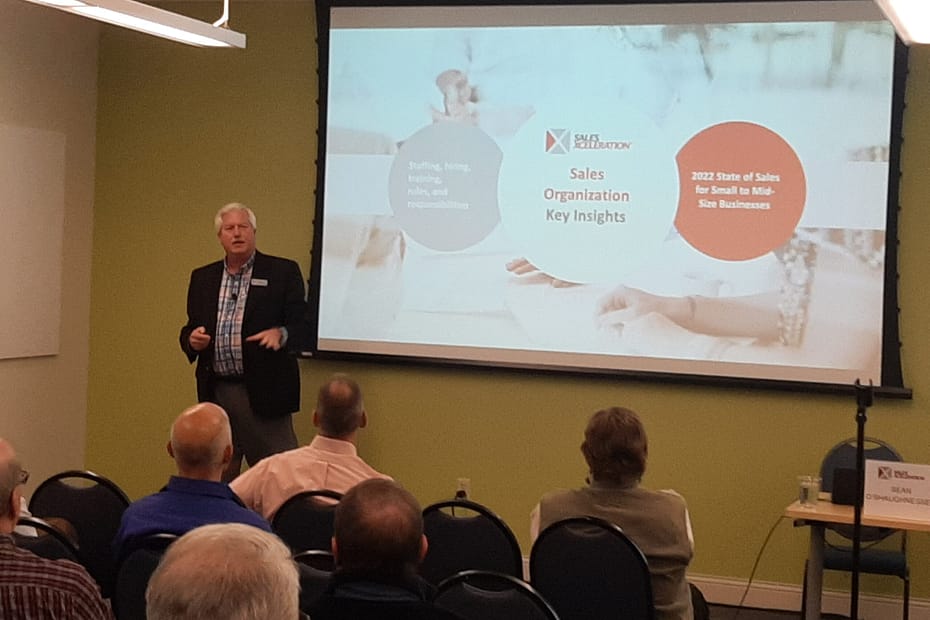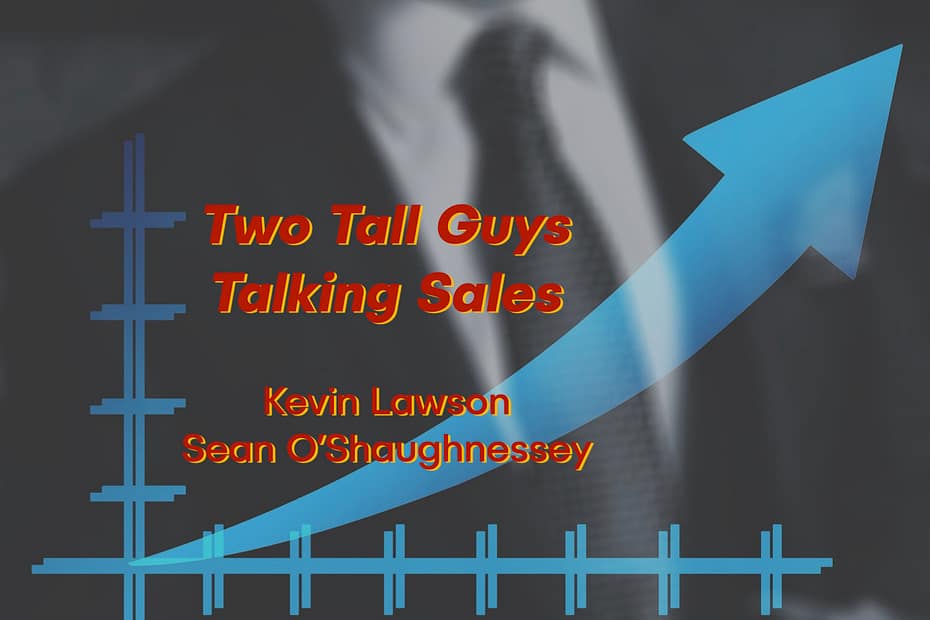In this episode, Kevin and Sean discussed the importance of setting appropriate sales goals for a company. They suggested starting with the end goal in mind and then working backward to set achievable but challenging targets. They also advise avoiding pitfalls such as not considering attrition or overstating possibilities when setting goals. Finally, they emphasize the importance of dedicating resources to new markets or initiatives to grow the business rather than only replacing lost customers.
You can subscribe to our podcast by searching in your favorite podcast player for “Two Tall Guys Talking Sales,” or you can listen to the embedded version here.
The following is a transcript of the podcast above. It has been sparsely edited to increase its readability, but many of the idioms and poor spoken grammar have been left in place. Fireflies.ai automatically generated the transcription, and, as capable as that product is, there are times when words are missed or the sentence structure is incorrectly interpreted. We have tried to catch all of these software misses, but we are confident that some still remain. The below text is provided for those that would rather read than listen to a podcast.
00:00
Kevin Lawson
Hello, and welcome to episode two, not eight, of “Two Guys Talking Sales.” I’m one of your hosts, Kevin.
00:10
Sean O’Shaughnessey
And I’m Sean.
00:11
Kevin Lawson
We’re glad you’re here on this Two Guys Talking Sales episode.
This podcast tackles real sales issues, big and small, for salespeople selling situations and sales leadership. We’ve individually built successful sales careers around the problems and solutions in B-to-B selling, from software and services to manufacturing distribution. We have sold to and for many of the world’s most recognized brands as well as some you have yet to hear of. We know LinkedIn says this is a 30-minute time slot. Still, we’ll only take 15 minutes—nothing like under-promising and over-delivering. For roughly the next 15 minutes, we invite you into our world of experience. We’ll dig into one issue. You’ll have a solution should you encounter a similar situation in your career. Let’s dive in.
Sean, let’s set the stage.
01:07
Sean O’Shaughnessey
This topic should be about setting your sales plan objectives for this year.
01:15
Kevin Lawson
Setting objectives for the year. Like not being tongue-tied on a public broadcast. How about that?
01:21
Sean O’Shaughnessey
At least you tried to plan ahead and had it written. Now that’s better than I did. I’m just winging it.
01:25
Kevin Lawson
Our last episode was all about planning your year. Why not have a plan? Well, so you’ll know how you’re doing?
01:32
Sean O’Shaughnessey
There you go.
01:33
Kevin Lawson
Today, we will talk about how to determine company sales objectives. Yes, let’s do that.
Read the rest of the article… 






